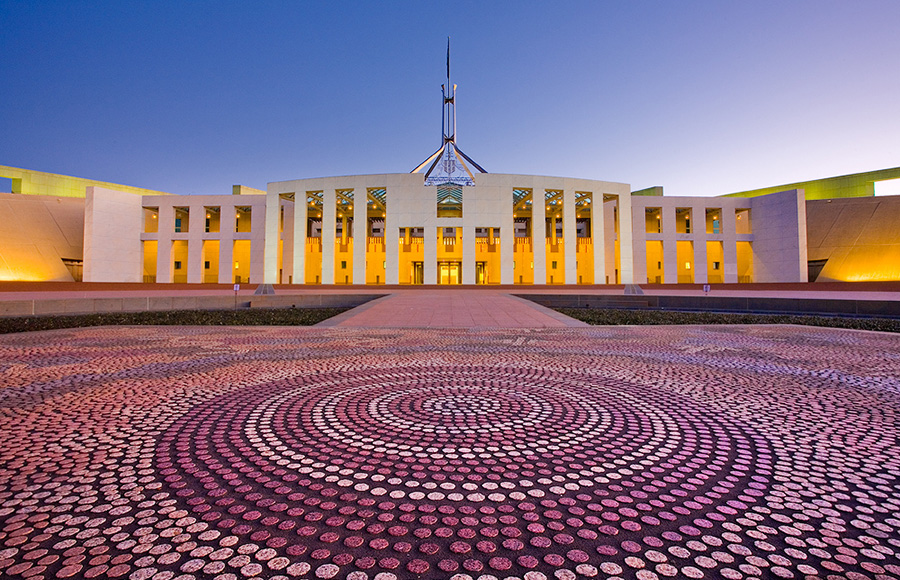Summary
Notwithstanding a slowing global economy, the 2019 Federal Budget provides an optimistic forecast for Australia’s economic future, with a forecast return to Budget surplus, tax cuts and several new funding announcements, as might be expected with an election to be held within weeks.
The imminent election means less certainty than usual around whether all Budget announcements will be implemented. While health and medical research is fortunate to have strong bipartisan support, if the Government changes at the next election so could some spending priorities. With that proviso, the following is what we know about Budget announcements tonight relating to health and medical research.
The Medical Research Future Fund (MRFF) remains on track to receive a massive $7.8 billion capital injection in 2019/20 and to reach its capital target of $20 billion by 2020/21.
Since January we have seen more than $800 million in MRFF funding announcements committed to new programs spanning up to a decade, and a 10 year plan for nearly $5 billion in MRFF funding has been announced tonight.
The NHMRC funding announced tonight provides for continued small increases in funding over the four year budget estimates, at less than the rate of inflation. While the same is largely true for the Australian Research Council Funding programs, funding for the Research Support Program has been cut significantly, hampering the ability of our universities to conduct research.
Read on for more detail.
Medical Research Future Fund
$20 billion in capital by 2020/21
As at 31 December 2018 the Medical Research Future Fund (MRFF) had $9.4 billion in capital. Tonight’s Budget maintains the Government’s commitment to reach the target of $20 billion in capital by 2020/21, with a forecast balance of $20.2 billion at 30 June 2021. $7.8 billion is scheduled to be added to the capital in the next financial year, by far the single largest capital injection since the MRFF’s inception. A further $2.5 billion in 2020-21 would take the balance to a little over $20 billion. We will watch with interest to see how the commitment to $7.8 billion in 2019-20 plays out.
MRFF Capital Injections
| $m. |
18-19 |
19-20 |
20-21 |
21-22 |
| Capital to the MRFF |
2,288.550 |
7,830.490 |
2,522.178 |
Nil |
Funding from the MRFF
Forecast spending from the MRFF remains largely as expected, over the forward estimates, with $396 million available to fund medical research and innovation in 2019/20, rising to $650 million by 2022/23. The forecast for 2020/21 is $579.9 million, some $70 million less than was forecast in the Budget last year. The likely explanation is that the Department is unable to keep up with the rapid increase in the funding available, and is opting to spend wisely rather than quickly. Any funds not spent remain in the MRFF and are available in following years.
MRFF expenditure
| $m. |
18-19 |
19-20 |
20-21 |
21-22 |
22-23 |
| MRFF Funding 2019 Budget |
222.4 |
396.0 |
579.9 |
646.0 |
650.0 |
| MRFF Funding 2018 Budget |
222.4 |
392.7 |
650.2 |
646.0 |
N/A |
MRFF Funding Announcements
The Budget included numerous announcements of further funding to be made in the next financial year and further years, with a plan over 10 years, allocating nearly all available MRFF funds over that period. Nearly all of this is the continuation of programs and Missions that have already been funded, including providing funding of $70 million per annum for the Frontiers program instigated by Research Australia from 2021-22.
The surprise inclusions in the MRRF funding announcements are two programs funding research and innovation infrastructure. The first of these is $605 million over 10 years for National Critical Infrastructure. Starting with $5 million in 2019-20, it rises to $75 million per year from 2022-23. This is the Health Portfolio’s contribution to funding of the 12-year National Research Infrastructure Investment Plan announced in last year’s Budget.
The second is a smaller program of funding for Data Infrastructure, expected to fund registries, biobanks and data linkage. This Program provides $10 million a year from 2020-21, and applications for funding are expected to be called for soon.
Together these programs represent a very significant investment in infrastructure, totaling $685 million over 9 years, and nearly $1 in every $7 of MRFF funding over the 10 year plan.
Health and Medical Research Office
Tonight’s Budget also includes $20 million over the next four years to create the Health and Medical Research Office (HMRO) within the Department of Health. The new HMRO will oversee the rapidly increasing level of investments made by the MRFF. It will have its own CEO, appointed by the Secretary of Health, ensuring the MRFF continues to have ‘the right administrative support.
‘The new CEO will be a contact point for greater community and international engagement, provide greater expertise around investments from the MRFF and ensure greater expertise around developing HMR strategy and policy.’
NHMRC and ARC Funding
In Research Australia’s Pre- Budget Submission and our Pre-Election Statement we have called for increases in funding for the NHMRC and ARC’s research programs. This Budget sees both schemes continue to decline in real terms, which is of genuine concern to the health and medical research community.
NHMRC Programs
The 2019/20 Budget reveals funding for the NHMRC’s programs falling in real terms. Funding to the Medical Research Endowment Account (MREA) for the NHMRC’s research programs is $842.766 million for 2018-19. Continuing the pattern of last year’s budget, the estimates for the following three years have the funding remaining virtually stable with increases of roughly 1.5% each year.
The CPI was 1.8% for the year to 31 December 2018, so in real terms Government funding to the MREA continues to decline over the forward estimates, as it has for several years now.
(In Budget Paper 1 at page 9, the following forecast for CPI is provided. ‘Consumer price inflation is forecast to be 2¼ per cent through the year to the June quarter 2020 and 2½ per cent through the year to the June quarter 2021.’)
NHMRC MREA Funding
| $m. |
18-19 |
19-20 |
20-21 |
21-22 |
22-23 |
| Funding to the MREA 2019 Budget |
829.324 |
842.766 |
856.250 |
869.950 |
883.870 |
ARC Programs
The Australian Research Council’s Funding Programs are critical to Australian publicly funded research including to the life sciences and medical technologies.
Over the forward estimates, the funding to the ARC for the Discovery Program declines slightly in later years compared to the estimates in last year’s Budget, a trend that has been continuing for three years now. The increases year on year are a little greater than the current inflation rate of 1.8% and around the forecast CPI.
| $m. |
18-19 |
19-20 |
20-21 |
21-22 |
22-23 |
| Discovery (2019 Budget) |
493.951 |
507.044 |
513.542 |
525.537 |
538.350 |
The Linkage Program was singled out in the Government’s National Innovation and Science Agenda (NISA) as an important component of Australia’s innovation system, and it was announced that from 1 July 2016 the Program would be open to continuous applications and decision making would be fast tracked. Funding over the forward estimates is lower than forecast in last year’s budget and shows increases at around the rate of CPI.
| $m. |
18-19 |
19-20 |
20-21 |
21-22 |
22-23 |
| Linkage (2019 Budget) |
265.974 |
279.168 |
288.788 |
295.246 |
301.741 |
| Linkage (2018 Budget) |
273.990 |
285.432 |
293.492 |
297.862 |
N/A |
While not funding ‘medical and dental research’, the ARC Linkage program remains important to the health and medical research and innovation sectors. For example, the latest round of ARC Linkage Program grants included funding for tissue engineering of blood vessels and the reduction of anxiety in children with autism.
Research Support
In addition to providing funding for the ARC Program, the Department of Education and Training also provides funding to universities to help cover the indirect costs of research. The Research Support Program has suffered significant cuts compared to the Budget forecasts for last year; funding for 2019-20 is more than $50 million lower than forecast last year, and nearly $100 million lower in 2021-22.
Research Support Program
| $m. |
18-19 |
19-20 |
20-21 |
21-22 |
22-23 |
| 2019 Budget |
894.016 |
902.062 |
920.573 |
941.748 |
962.455 |
| 2018 Budget |
903.425 |
959.816 |
1,018.879 |
1,042.302 |
|
Funding for the indirect costs of research funded by the MRFF is now to be provided from the Research Support Program. With the MRFF providing hundreds of millions of dollars in funding to universities over the next few years, a substantial increase in the Research Support Program is needed just to maintain the levels of research support funding for research projects at their current already inadequate level. The cuts to the Research Support Program represent a real threat to the capacity of our universities to undertake vital health and medical research.
The issue of indirect research costs remains unresolved for the whole health and medical research sector and indeed publicly funded research more broadly. Research Australia continues to call for a whole of government approach to the issue of funding indirect research costs. Research Australia proposes that the Chief Scientist lead a review of the funding of indirect research costs to establish a sustainable and equitable funding program.In the short term, the pool of funding for the Research Support Program must be increased substantially.
CRC Program
Funding forecasts for the CRC Program are largely in line with last year’s budget. The program is forecast to receive $922 million over the period from 2018/19 to 2022/23.
CRC Program $million
| $m. |
18-19 |
19-20 |
20-21 |
21-22 |
22-23 |
| 2019 Budget |
167,341 |
184,150 |
187,356 |
192,239 |
191,223 |
The CRC Program is important to health and medical research and innovation with about one third of the CRCs funded over the life of the program being health-related. The most recent round of CRC funding included $55 million over 7 years for the Digital Health CRC.









